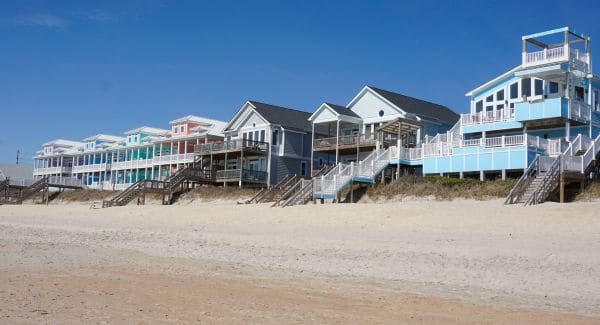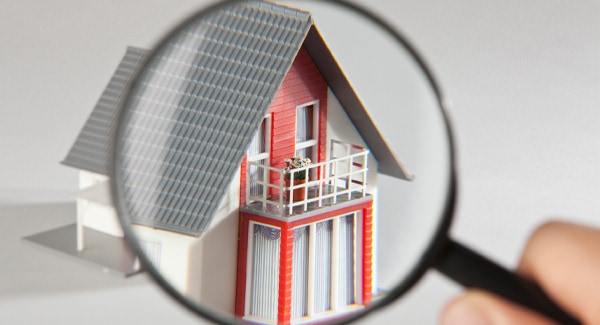
Last Updated on January 26, 2026
So, you’re thinking about buying a second home. Congrats!
Whether your work has gone remote, or you’re looking for a way to get as far away from work as possible, there are many great reasons to invest in a second home. However, buying a second home is not the same as buying your first. There are different financial and practical factors to consider. This is because there are several ways second homes differ from other property holdings.
Here are three questions you can ask to understand how second homes are different from primary homes and investment properties.
What is a “second home”?
A second home first differs from other property types in its usage. Your primary home is where you live most of the year and where you receive your mail. In many cases, it’s also close to your place of employment.
In contrast, a second home is not your main home, but one that you occupy for some part of the year and use exclusively for your enjoyment. This could be on weekends, holidays, or during certain seasons. Most of the time, lenders expect your second homes to be at least 50 miles away from your primary home. You can rent second homes for less than 180 days of the year; above that, they are considered investment rentals for tax purposes. You must also reside in the home for either 14 days or 10% of the days you rent out the property, whichever is greater.
Both primary and second homes differ from investment properties in terms of their occupancy and usage. An investment home is purchased for the sole purpose of generating income. Common types of investment properties include vacation rentals, a fix-and-flip home, or a rental home that earns monthly income.
How do mortgage rules differ for buying a second home?
There may be many scenarios where you can picture the definitions above overlapping. For instance, let’s say you own a vacation rental, but block off two weeks every year for your own usage. What’s the harm of calling it your second home? In everyday conversation, you’re welcome to use whatever terms you wish for your properties.* But when it comes to securing a mortgage, the terms can make a significant difference in the amount you pay.
Mortgage loans for primary homes are the most common and the easiest to get. Many are backed by the government, such as FHA or VA loans. In contrast, second homes (and investment properties) pose a greater risk to lenders and are therefore more challenging for buyers to secure.
In order to qualify for a mortgage on a second home, your lender will evaluate your debt-to-income ratio (DTI). You can calculate your DTI by adding up the monthly debts you have and dividing this figure by your monthly pre-tax salary.
If a homeowner were to hit financial hardship, they would be more likely to stop paying the mortgage on a second home before the mortgage on their primary residence. For this reason, lenders tend to charge slightly higher mortgage rates (typically 0.5–1%) and require larger down payments for second homes. Whereas a 3–5% down payment is fine for a primary residence, your lender may ask you to provide 10% or more for a second home. In addition, you’ll likely need 2–6 months of financial reserves, depending on your credit and financial profile. This ensures lenders that you’re able to cover mortgage payments on both your primary residence and second home.
*Editor’s Note: Intentionally misrepresenting how you use a property so you benefit through relaxed mortgage requirements is viewed as occupancy fraud, which can result in fines, prosecution, and jail time if convicted.
What features should buyers look for when buying a second home?
There are certain home features that homeowners require for everyday living. And there are others that are important in a vacation home that you may not need all the time. If you’re considering buying a second home, you should think through your priorities and have those top of mind during your home search.
Low maintenance
Practically speaking, if you are not going to be living in a property full-time, you’ll want to find one that’s low maintenance, inside and out. Search for communities that provide exterior lawn and home maintenance. These homes may come at a premium, but will be worth it for the peace of mind, knowing that your home is being cared for while you’re away. The alternative is to contract with a local landscaping company to maintain your yard throughout the year.
Inside, seek out homes that have been recently updated, and check the quality of those updates. Ask about the ages of appliances and mechanical equipment. It’s never fun to show up to a vacation home with no hot water because you didn’t realize the water heater reached the end of its shelf life.
Amenities and activities
Are you interested in buying a second home within a luxury resort community with a clubhouse, golf course, and built-in entertainment schedule? Or would you prefer a downtown commuter condo amid the hustle and bustle of live music, gallery openings, and world-class restaurants? Or perhaps you’ve had too much of the city grind, and your ideal second home is out in the country, with nothing but access to hiking trails and stocked fishing creeks to keep you busy. Whatever lifestyle you seek, your second home’s location will play a direct role in helping you find it.
Two of everything
Once you buy a second home, you need to fill it. This includes everything from mattresses to hand soap dispensers. Don’t forget to budget for the cost of duplicating all the items that make a home a home. If that seems too overwhelming, you could always fill your second home piecemeal, bringing only the most necessary furniture up front and adding to it every time you stay. Or, you could look for homes that are being sold already furnished. Again, you may pay more up front, but it will save you a lot of time and effort in the long run.
Ready to find your perfect second home?
Discuss your goals with your Howard Hanna Allen Tate Realtor and your Howard Hanna Mortgage Services loan officer. If this is your first time purchasing a second home, they will be able to help you weigh the short- and long-term benefits and find the best property for your needs.
_______________________
Howard Hanna Allen Tate Real Estate is the #1 real estate company in the Carolinas, with more than 75 offices and 1,800 agents serving communities across North and South Carolina. As part of Howard Hanna Real Estate Services, the largest family-owned and operated real estate company in the United States, Howard Hanna Allen Tate offers a full suite of real estate services, including mortgage, insurance, title and relocation. For more information, visit www.howardhannatate.com.
NMLS #101561. For full licensing information, visit www.nmlsconsumeraccess.org. Contact Howard Hanna Mortgage Services for full details on mortgage products and eligibility. Terms, conditions, and certain restrictions may apply to programs. Offer of credit is subject to credit approval.
Example: 7.059% APR based on $305,000 purchase price; $244,000 loan amount; 30-year fixed rate loan with 80% ltv and 779 credit score. APR is based on secondary market conditions and subject to change. Effective May 8, 2025.



